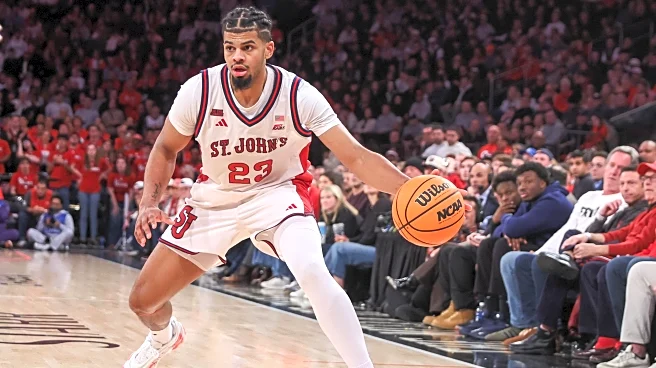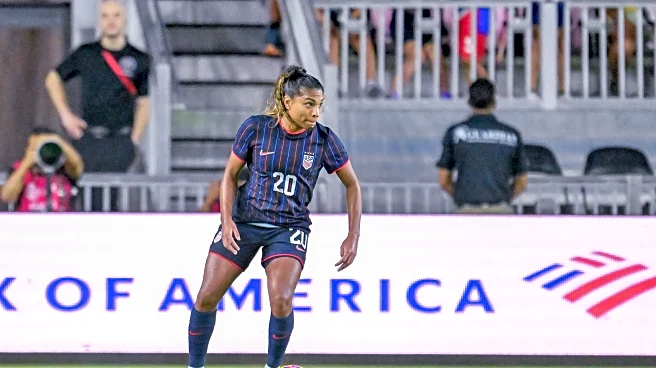What's Happening?
Golf legend Jack Nicklaus has been awarded $50 million in a defamation lawsuit against his former company, Nicklaus Companies. The lawsuit stemmed from allegations that Nicklaus was considering a $750 million deal to join LIV Golf, and claims that he was suffering
from dementia, which affected his ability to manage his affairs. A jury in Palm Beach County, Florida, found that these allegations damaged Nicklaus's reputation, exposing him to ridicule and contempt. The lawsuit named billionaire banker Howard Milstein and executive Andrew O'Brien, but the jury ruled in their favor, meaning they will not have to pay additional damages. Nicklaus's attorney emphasized the difficulty of proving damages in defamation cases, especially given Nicklaus's longstanding positive reputation.
Why It's Important?
The verdict is significant as it underscores the challenges and implications of defamation cases, particularly for high-profile individuals like Jack Nicklaus. The ruling not only clears Nicklaus's name but also highlights the potential reputational damage that can arise from false allegations. This case may influence how defamation lawsuits are approached in the future, especially in the sports industry where public perception is crucial. The outcome also serves as a reminder of the legal complexities involved when personal and professional reputations are at stake, potentially affecting business relationships and contractual agreements.
What's Next?
Following the verdict, Nicklaus may seek to restore his public image further and continue his involvement in golf without the shadow of these allegations. The case may prompt Nicklaus Companies to reassess their legal strategies and public relations approaches to prevent similar disputes. Additionally, the ruling could lead to increased scrutiny of how companies handle internal disputes and the dissemination of information that could harm reputations. Stakeholders in the sports industry might also take note of the legal precedents set by this case, potentially influencing future contractual negotiations and dispute resolutions.
Beyond the Headlines
The case highlights broader ethical considerations regarding the dissemination of potentially harmful information and the responsibilities of companies to protect the reputations of their affiliates. It raises questions about the balance between corporate interests and individual rights, especially in high-stakes industries like sports. The legal battle also reflects the ongoing tensions between traditional sports organizations and emerging entities like LIV Golf, which have been reshaping the landscape of professional golf.
















